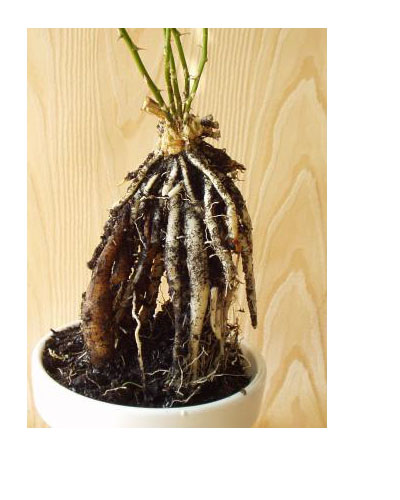Shatavari
Latin: Asparagus Racemosus
Therapeutic Action:
Asparagaceae Medicinal Uses Alterative; Antispasmodic; Aphrodisiac; Demulcent; Digestive; Diuretic; Galactogogue; Infertility; Women's complaints. Shatavari (this is an Indian word meaning 'a woman who has a hundred husbands') is the most important herb in Ayurvedic medicine for dealing with problems connected women's fertility[238]. The rhizome is a soothing tonic that acts mainly on the circulatory, digestive, respiratory and female reproductive organs[238]. The root is alterative, antispasmodic, aphrodisiac, demulcent, diuretic, galactogogue and refrigerant[240, 243]. It is taken internally in the treatment of infertility, loss of libido, threatened miscarriage, menopausal problems, hyperacidity, stomach ulcers and bronchial infections[238]. Externally it is used to treat stiffness in the joints[238]. The root is used fresh in the treatment of dysentery. It is harvested in the autumn and dried for use in treating other complaints[238]. The whole plant is used in the treatment of diarrhoea, rheumatism, diabetes and brain complaints[243]. Uses : The roots are bitter, sweet, emollient, cooling, nervine, tonic, constipating, opthalimic, anobyne, aphrodisiac, . They are useful in nervous disorders, dyspepsia, tumours, scalding of urine, throat infections, tuberclosis, cough bronchitis and general debility. A soothing, tonic herb that acts mainly on the circulatory digestive, respiratory and female reproductive organs. It is used internally for infertility, loss of libido, threaded miscarriage, menopausal problems, hyperacidity, stomach ulcers, dysentery and bronchial infections. This is the most important herb in Ayurvedic medicine for women as Withania somnifera is for man.
References:
- Nadkarni, Vol I, Pages 153-154
- Pararnjape P 241-243
- Nadkarni, Vol I, Pages 153-155
- Nadkarni, Vol Pages 151-155
- Nadkarni, Vol I, P 151-152, 153-155
Used in:
- Brain-Act Capsule
- Gelunex Capsules
- Lekorin Capsules
- Unitex Forte Capsule / 5. Unexotone Syrup

Copyright 2013 Unexo Laboratories Pvt. Ltd. All Rights Reserved. Designed & Developed By: Credence Technologies


